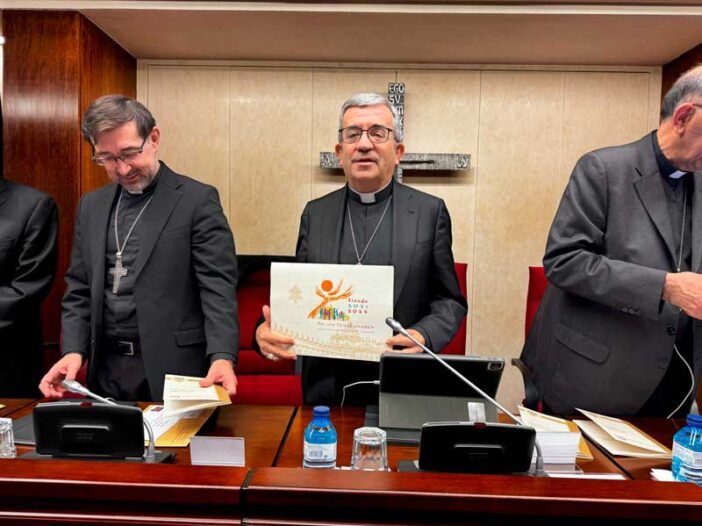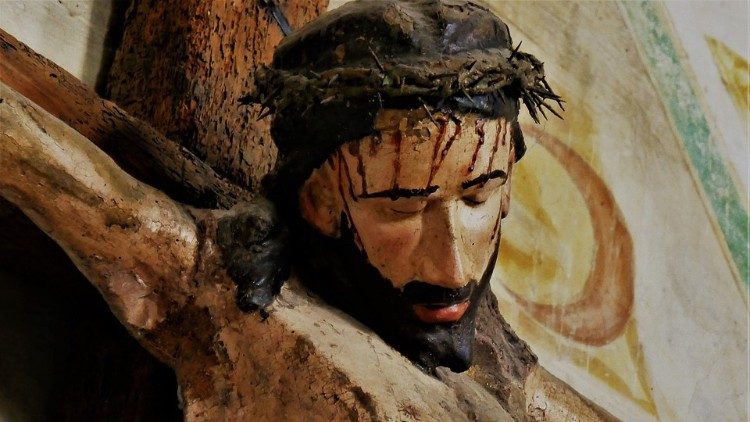You shall love the Lord your God and your neighbour as yourself: Fr. Jorge Miró
Sunday 29 October 2023

Fr. Jorge Miró shares with Exaudi readers his commentary on today’s Gospel, October 29, 2023, entitled “You shall love the Lord, your God, and your neighbour, as yourself.”
***
In the Gospel, we see how the Pharisees ask Jesus which commandment is the chief commandment of the law?
Jesus’ answer shows that the decisive thing is not to know which commandment is the most important, but to look for the origin of all of them: love is the centre and the compendium of God’s law. Man is created in the image of God, and God is love. Therefore, the vocation to love is what makes man the authentic image of God: he is like God to the extent that he loves (Benedict XVI).
That is to say, man is fulfilled as a person to the extent that he loves with a love like God’s: gratuitous, faithful, generous, total. To the extent that he goes out of himself and can give himself.
To be a Christian is to have discovered that God loves you freely; it is to be in love with Jesus Christ, it is to begin to respond to God’s love, until one day, you will be able to love him with all your heart… It is to live the new life that the Holy Spirit is making in you. It is to live life as a love story with the Lord.
As you are touched by God’s love, your life begins to change. You begin to love with that same love: freely, faithfully, generously, generously, surrendered, total….
This is why being a Christian is not a moralism; it is not simply “fulfilling” a series of commandments or rules.
To be a Christian is to follow Jesus Christ, to recognise Him as the only Master and to confess Him as the only Lord, letting Him be the Lord of your life.
This Word invites us to a very profound conversion: to put God at the centre of your life, to let Jesus Christ be your Lord, and to listen every day to the Holy Spirit who, in the midst of struggles and tribulations, fills your heart with joy, because He certifies in your heart that God loves you; that He is with you there, on your cross, in your concrete history; that there is nothing and no one who can separate you from this Love.
And then the Spirit will go about ordering your life – taking into account your weakness. He will bring about in you the love of neighbour, which is born of docile listening and trusting acceptance of the Word of God.
For he who loves God does not live in idolatry, nor does he take his name in vain, and he seeks to sanctify the feasts, because he has discovered that the Lord is doing great works in his life and needs to celebrate them with his brothers and sisters.
He who loves God, sees how faith makes the other a brother, a child of the same Father, also the poor, the stranger, the widow and the orphan. And he who recognises the other as a brother, loves him: he respects and helps his family, he is not violent towards his brother and does not kill him; he respects him because he recognises that both he and his brother are temples of the Holy Spirit; he does not steal from his brother, does not lie to him, does not think or wish evil for anyone and does not envy or covet his brother, precisely because the other is not a rival to fight against, nor an object to use and discard, but faith makes the other a brother to love and serve, a gift to be welcomed.
Come, Holy Spirit (cf. Lk 11:13).
Related

“The priest finds his reason for being in the Eucharist”
Fundación CARF
01 April, 2025
5 min

Family Valued: An international appeal for the family
Exaudi Staff
01 April, 2025
2 min

Bishop Luis Argüello Addresses the Challenges of the Church in Spain
Exaudi Staff
01 April, 2025
2 min

THE WAY OF THE CROSS: Accompanying Jesus on the way to the Cross
Luis Herrera Campo
31 March, 2025
5 min
 (EN)
(EN)
 (ES)
(ES)
 (IT)
(IT)

